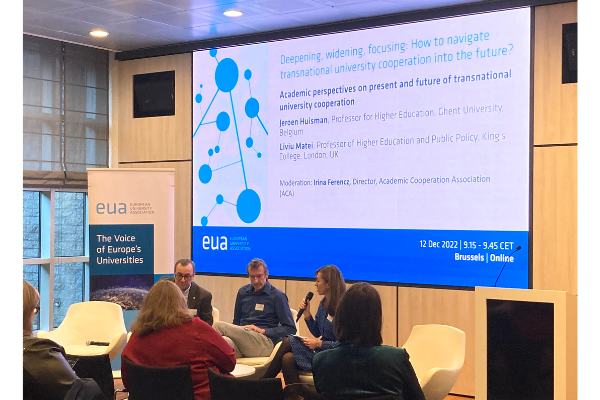On 12 December 2022, the European University Association (EUA) organized an international conference focusing on the purposes, the challenges and the future of university cooperation across borders.

Over the past decade, the emergence of strategic partnerships and alliances in the higher education sector has contributed to deepening cooperation resulting in diverse forms of collaboration across bilateral student mobility, joint programmes, peer-to-peer research collaboration, small to large-scale cooperation projects and more. However, the consequences of the Covid-19 pandemic, the current geopolitical crisis and the sustainability challenges also affect transnational university cooperation.
Representing more than 850 universities in 49 European countries, the European University Association plays a crucial role in influencing EU policies on higher education and provides opportunities to share best practices by participating in projects, events and other mutual-learning activities. With the ending of the pilot phase of the European Universities Initiative and reflecting on the growing intensity of cross-border cooperation between universities, the EUA organized a conference on transnational university collaboration.
The sessions of the event focused on the academic perspectives on cross-border cooperation, its purposes, current formats, frameworks and challenges as well as on future prospects with an international outlook. The conference brought together university representatives, higher education and research stakeholders and European level policymakers who discussed current challenges and external developments.
If you are interested in the discussion but were not able to join the conference in Brussels or online, you can learn more by watching all the sessions on EUA’s YouTube channel.